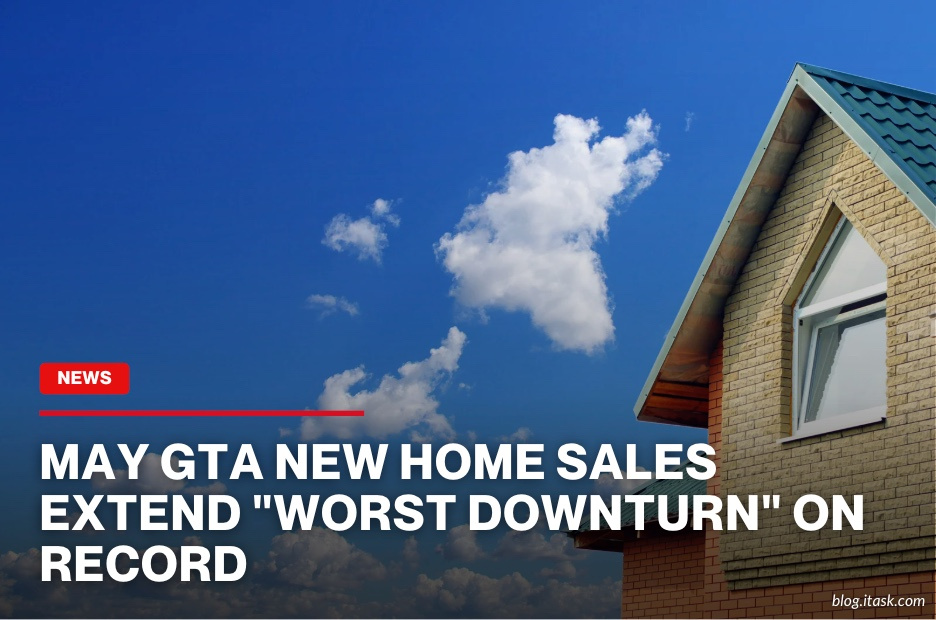May GTA New Home Sales Extend "Worst Downturn" On Record
May GTA New Home Sales Extend "Worst Downturn" On Record

May in the Greater Toronto Area saw yet another sharp drop in new home sales. The area recorded just 345 sales of newly built homes. That figure is 64 percent lower than in May 2024 and a staggering 87 percent below the ten-year average — meaning around 2,400 more homes would have sold in a typical May. May marked the eighth straight month of record-low sales, continuing what experts are calling the worst downturn of new home sales in the region on record.
Looking closer, sales of condos and single-family homes both fell sharply. Condo sales plunged by 74 percent compared to last May, while single-family home sales dropped by 53 percent year-over-year. Those two categories accounted for 137 and 208 transactions in May, respectively, reflecting deep weakness across both types of housing in the region.
Part of what’s feeding this slowdown is a broader lack of confidence among buyers. Although buyers technically have the upper hand today, many are holding off. Economic uncertainty, especially around interest rate changes and shifting trade policies, has left people unsure about making long-term financial commitments.
The slowdown is also affecting other parts of the housing market. New housing starts in Toronto fell 22 percent in May compared to last year, showing that builders are pulling back in response to reduced demand. With fewer new projects underway, the future housing supply could be impacted.
High construction costs are also keeping prices and homeownership out of reach. Industry voices have warned that today’s “cost to build” crisis could harm both the economy and the quality of city services. Some are urging governments to step in with tax relief and reductions in development charges to help ease the pressure on builders and encourage new projects.
With demand so low and prices still high, the industry is concerned about the long-term damage. Without serious action soon, the continued slump in sales and construction could hurt job growth, slow the economy, and limit housing availability across the region.
